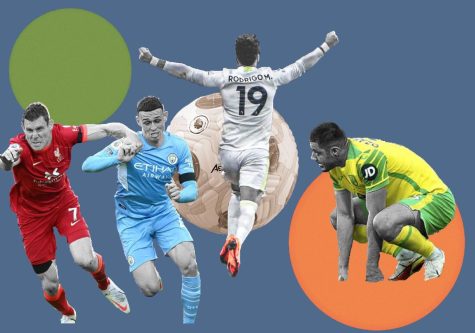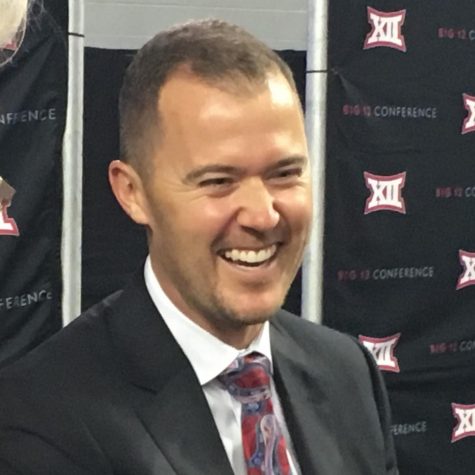Thinking About Waffles: a slam poem
by Riley O’Connell ’15
My brother would tell this story differently.
He would tell a lot of things differently than I do,
I think.
Death is a funny thing.
But Kyle would tell me not to think of it as death.
“I’m only leaving early to beat traffic,” he’d say.
Or, “God’s just bumping up my reservation.”
Death was a funny thing.
To my brother, at least.
Never before had I heard someone say at age 9
that they were going to die.
I didn’t think he actually believed it. I know I didn’t.
But I think the knowing changed him.
I think it changed us all.
The day he first told me, we were in elementary school,
the sky was the color of coffee-drenched papyrus
and full of dark liquid clouds,
and he wheeled himself one-armed and waffle-faced
into the waiting room from radiation.
“When I die,” he laughed,
and pointed to his dimpled cheeks,
“I want my face to look like this.
That way,
people can’t be sad.”
He smiled.
“Who could be sad when they could be thinking about waffles?”
My mom said it was Kyle’s way of coping with it,
and I told her that sometimes it seemed like he wasn’t coping at all,
and that sometimes I felt like nobody else felt the gravity of the entire world on their shoulders,
and that sometimes I wished that I was the one with the tumor.
She said I needed to be more understanding.
Likewise, I said,
God needed to give me a more understandable life.
They didn’t understand that,
although I may not have been able to do long division or
count higher than one-hundred and four without feeling lightheaded,
I could have counted all my worries,
and I could have counted each noncancerous cell in my body because I cared so much,
and he didn’t understand that 10 years old is far too soon
and 10 years old is way too close
and 10 years old means we couldn’t boogie-board down the stairs
or play soccer with the yoga balls,
and at 10 years old,
we would never see each other graduate.
He didn’t understand that change like that made me feel like a bumble bee in a beer bottle.
At our age, neither of us were mature enough for silence,
but that day, I wished we had been.
Dr. Smith had told him that every seven years,
every cell in our bodies change,
and he asked me what I thought of that and I told him I didn’t.
But that night, I did.
I counted on my calendar that my seventh birthday had been
three months, two weeks, and six days ago,
and I thought how wonderful it should feel to have cells only
three months, two weeks, and six days old.
But it didn’t feel wonderful.
It felt treasonous,
to know that I had an entirely new body of entirely new cells,
and that every seven years this would happen again for me,
and for Jack
and for Erica
and for my parents
and my cousins
and everybody except for my brother.
So I asked him what he thought of it.
He hesitated at first
to watch the cotton candy clouds migrate further east,
but then he grimaced,
and he tried to smile past it,
but he grimaced,
and he said,
“I don’t really know if I have a choice anymore.”
And he looked down at his heavy hands.
“I don’t really think I ever did.”
I saw it change for him.
He woke up one morning
with the feeling of salted slugs in his veins and in his head,
and when they said
twenty percent survival rate,
he was terrified
because time was leaking —
flooding, really —
out the creases of his cupped hands
and he knew he’d be gone and we’d still be here,
loving him and
drowning.
And so he ran to the waiting room
and counted four other slug-veined children like him
and he cried till his heart shook
because life is so fragile,
and he couldn’t think that,
of those four children,
one could be buried before their next birthday.
One of them, or him.
And he cried
because he didn’t know which was the worse possibility.
And just like him,
I was terrified at how fast time was running out,
and I remembered how we would cup our hands in the rain as children
and try our hardest to keep the water from slipping away,
but this was so much different.
And I was terrified
because I’d be older and I’d still cup my hands
and try to remember what it felt like when the rain would fall
in funny, sideways drops,
and it would stick to our palms,
not seep out.
The trees would change and pens would run out,
but I would still lie awake at 3 a.m.,
for life would have moved on
and I would have put my money on a horse that ran in the wrong direction.
See, time was dripping like torrid candle wax,
and I could only watch as the wick burned down.
I was seven years old when I lost my brother,
when cancer took him the same day the Patriots took Super Bowl XXXIX,
when I lost not only a sibling,
but a best friend,
a role model,
and very much a part of myself.
I was seven years old when I stopped asking for help,
when I started telling myself that
I was the only one who could fix this
because I was the one who broke it.
I was seven years old when I convinced myself
that my brother died because I was
too selfish,
too needy,
too emotional,
too young;
because I didn’t pray enough,
know enough,
help enough,
love enough.
I got altitude sickness just from standing up for myself.
So then what we get is
a young girl growing up being told not to cry,
being told that
“everything happens for a reason”
and
“it’s just part of God’s plan”
and
“your brother wouldn’t want you to feel like this.”
So then what we get is
a young girl thinking that
how she feels isn’t reasonable,
that God knew she’d feel like shit
but took away her brother anyway,
that it only made sense to cry
if someone else gave her permission to.
So then what we have is
a young girl whose father only cried at funerals,
whose mother only cried when others cried,
whose classmates couldn’t care quite enough,
because their siblings were
dying to receive their First Communion,
dying to go on High Trails,
dying to go to high school,
dying to get asked to Prom,
dying to graduate,
dying to get married,
dying to live,
while hers was just…
dead.
The first day of freshman year,
I tried to distance myself from her,
from that girl who never stopped crying,
from that part of me
that wasn’t me.
It was him.
And he wasn’t me
and I wasn’t him,
but I realized then that
I didn’t know who I was
outside of what happened to me.
So when Ms. Trollinger perched on her desk
and told us that
our first assignment was to
Tell me about you,
I froze.
This wasn’t me.
He wasn’t me.
But who was I, then, if not
a 5-year-old girl
who had to find out for herself
that her brother had cancer,
because her parents only told her he was sick,
until they realized she wasn’t just reading Harry Potter,
but also the prognosis documents
that they left on the kitchen counter?
Who was I, if not
a first-grader
with a dozen third-grade boys
to stop the bullying for her,
until they graduated to the upper-campus
and she had to start spending her recesses
in the library instead?
Who was I, if not
a 7-year-old girl
who didn’t want to go to the hospital
on February 6, 2005,
because she would rather have watched Spongebob
than sat in another doctor’s office
while nurses gave her dumbed-down updates
because they were “easier to swallow”
than saying,
“Your brother isn’t going to live through the night”?
Who was I, if not
a sister
who went anyway,
who crawled beneath disinfectant-tainted,
white-washed bed sheets,
to fall asleep with her brother
for what she genuinely didn’t know
would be the last time?
Who was I, if not
a daughter
who in the next ten years
would wish every day
that she could’ve just had a
normal
childhood?
Who was I, if not
a 14-year-old girl
with no siblings
and no confidence
and no idea who she was?
Let me weigh for you the pros and cons
of letting people tell you who you are.
Pros:
• You make a lot of friends.
• You get to wear many different masks, like it’s Halloween every day.
• You never have to make your own decisions.
Cons:
• You make a lot of bad friends.
• It’s actually more like New Years,
with all the people making promises that
they know they’ll break by the end of the month.
• You never get to feel your own feelings.
That’s what it was like my sophomore year, when a boy
with hulking shoulders and a small mind
reminded me of just how many people have it
worse than me,
told me I had NO RIGHT to be sad about
one dead brother,
when there are MUCH BIGGER PROBLEMS like
poverty and
racism and
terrorism and
murder and,
of course,
high school boys
threatened by girls who speak their minds.
But I was scared.
Scared that this meant I would never, in turn, be happy
because others have it better.
Scared that this boy wouldn’t stop at calling me a selfish bitch,
scared to the point where
I had to have my brother’s best friend come with me every time I talked to him,
because I didn’t feel safe —
not in my school
or in my mind.
So I did the safest thing I could think of:
I saw the school therapist
once a week
every week
for thirty weeks,
told her about how sad I was,
how anxious I was,
because
his friends were seniors
and I was scared,
because
his friends were graduating
and I was scared,
because
his friends were leaving
and I was scared,
because
maybe that boy was right,
because
maybe I cry too much
because
maybe I think too much
because
maybe my 7 year old self was right
because
maybe this is my fault, and
I know that sounds stupid, but
maybe this is my fault, and
maybe I’ll be scared forever,
maybe I’ll feel like this forever,
like a pretty necklace that has since
snapped,
with beads lying scattered
under heavy, pressing snow,
like I could wake up in the middle of the night
imagining the feather’s weight of his quiet breath
on my shoulders,
like the faint humming in the walls
could
consume
me,
and I
was so
goddamn
scared.
Because I didn’t know who I was,
but whatever it was,
I was scared,
scared that it would disappear when they did.
Because when you don’t know who you are,
you fruitlessly search for yourself
in the attentive gazes of other people,
and you become petrified
like me,
paralyzed with the fear that
if they stop seeing something beautiful in you,
you’ll stop seeing it, too.
Because when we as a culture don’t bear witness to grief,
when we tell our bereaved that
“everything happens for a reason,”
and
“it’s just part of God’s plan”
and
“your brother wouldn’t want you to feel like this,”
when we avert our eyes and
wait for the mourners to
just
stop
being
sad,
to let go,
to move on,
to cheer up,
when we pathologize their pain,
call their suffering a disease,
when they have loved too deeply,
seen too sharply,
felt too clearly,
and instead of helping,
we tell them they need to get help,
that is when we fail one another.
My brother would tell this story differently,
and you’d like his version a helluva lot better.




